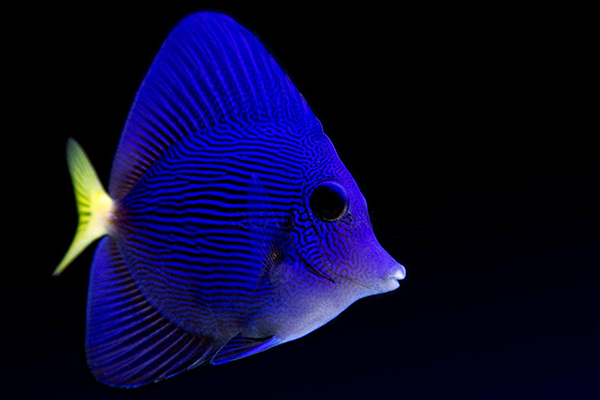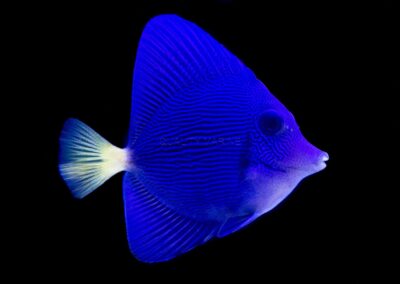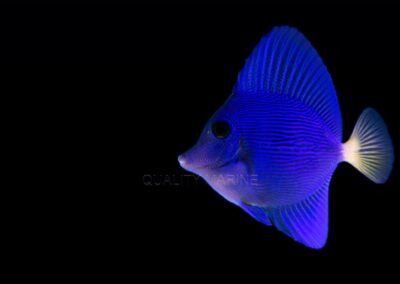
One of the first crop of Bali-bred aquacultured Purple Tangs to arrived at Quality Marine in Los Angeles.
via Quality Marine
Quality Marine Receives Some of the First Successfully Aquacultured Purple Tang (Zebrasoma xanthurum)
Another aquacultured species is now available through Quality Marine: the ever-popular Purple Tang (Zebrasoma xanthurum). Over the years, this species has been very popular in the aquarium trade due to its vibrant coloration and hardiness. The limited availability and collection range makes this successful captive breeding all the more important. Our vendor partner, Bali Aquarich, has worked tirelessly to successfully aquaculture this stunning species, and we are proud to have some in our facility.
In the wild, Purple Tangs are rarely seen in depths over 20 meters in the Red Sea and the Persian Gulf, with occasional reports of occurrences throughout the Indian Ocean, including the Maldives and Sri Lanka. Adults are usually found singly, but can occasionally be seen in schools as juveniles. They will spend the majority of their time feeding on a variety of algae in areas of coral reefs with rocky bottoms.
In aquariums, it is best to provide an environment that mimics the Purple Tang’s natural habitat. For continued health, strong water movement, plenty of space to swim, and rocks to graze on are essential. Since they spend the majority of their time in the wild grazing, it is important to have a significant supply of algae. If algae becomes scarce, be sure to supplement their diet with dried seaweed, such as Nutramar’s Nori and Gracilaria. Just like other tangs, it is not recommended to add the Purple Tang to aquariums with other tangs. However, if an aquarium with several Purple Tangs is desired, it is recommended to add them at the same time to an aquarium with adequate space.
-

Quality Marine is excited to bring captive-bred Purple Tangs to the US aquarium trade. Image credit: Quality Marine
-

Another look at the first captive-bred Purple Tangs to land in the US. Image credit: Quality Marine
Aquaculture and sustainability are essential to the longevity of the aquarium trade and the health of our oceans. This is why Quality Marine feels it is necessary to offer cultured specimens whenever available. Quality Marine is proud to add the Purple Tang to our ever-growing list of captive-bred species. Thank you to Bali Aquarich for all their efforts in successfully culturing this species and others.
###

Another species milestone has fallen; Zebrasoma xanthurum, the Red Sea Purple Tang, has been captive-bred by Bali Aquarich.
Editor’s Note: Read the candid announcement of this breeding success, as told by Bali-Aquarich’s Wen-Ping Su earlier in 2019.




